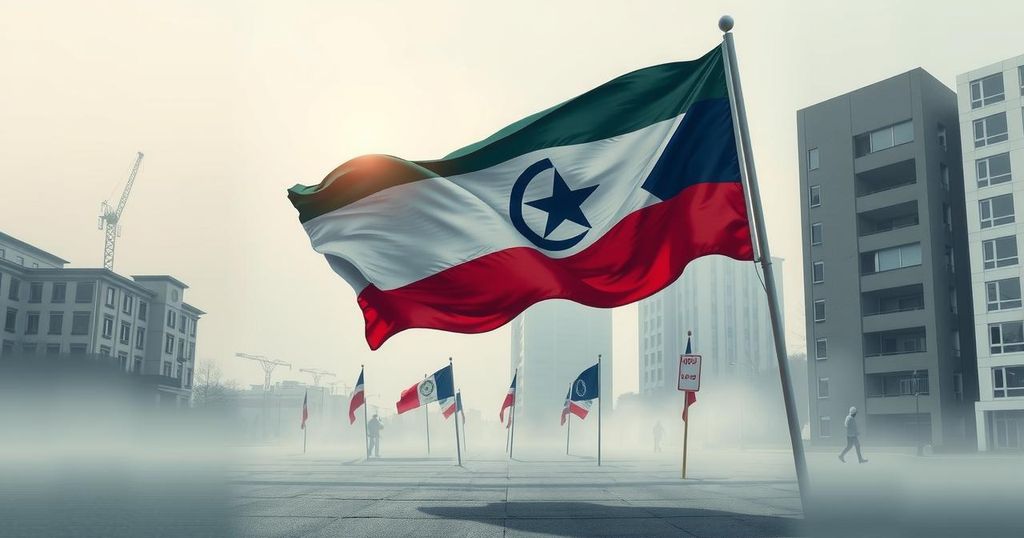Approximately 40 protesters in northern Nigeria were arrested for displaying Russian flags during demonstrations against rising living costs. Army Chief Christopher Musa declared such actions a potential treasonable offence. The nationwide protests have led to multiple arrests and fatalities, reflecting widespread discontent with the government’s economic policies under President Bola Tinubu, who has urged patience while navigating growing unrest.
In recent protests across northern Nigeria, approximately 40 individuals were detained for displaying Russian flags in demonstrations against the rising cost of living and perceived government mismanagement. The Nigerian army chief, Christopher Musa, condemned flying foreign flags as a potential “treasonable offence”. Nationwide protests have persisted for six days, resulting in at least seven fatalities and over 700 arrests. Protesters have expressed their grievances with slogans like “we are hungry,” while a minority displayed support for Russian President Vladimir Putin, prompting calls for Russian assistance.
The arrests represent an effort to suppress any emerging support for Russia amid ongoing civil unrest in Nigeria, a pivotal oil producer aligned with Western nations. Following recent military coups in the region, several neighboring countries, including Niger, have shifted towards Russia. Civilian governments, typically backed by Western powers like France and the U.S., have lost popularity due to their failure to address issues such as security, corruption, and economic instability.
President Bola Tinubu, who assumed office in May 2023, has faced significant dissatisfaction, especially after eliminating a long-standing fuel subsidy, which led to steep increases in fuel and food prices. Although he has urged patience among the populace, frustration has resulted in widespread protests, prompting meetings with security forces to manage the unrest. Musa reiterated the government’s stance, stating, “We will not accept… any foreign flag in Nigeria. That is a treasonable offence.”
The Russian embassy responded to these events by distancing itself from the protests, remarking that the flags were the “personal choices” of the demonstrators and affirming that Russia does not interfere in Nigeria’s internal matters. Protests in Kaduna and Zamfara states have resulted in numerous arrests, including a tailor accused of making foreign flags, and have led to the imposition of curfews in affected areas. Amnesty International has reported casualties and criticized security forces for excessive violence against protesters.
In his address to the nation, President Tinubu acknowledged the grievances of the demonstrators while asserting that opportunistic looters have exploited the protests. He expressed determination to restore order and engage in dialogue with the populace. As unrest escalates, the calls for reform and change grow stronger among the Nigerian people, further complicating the nation’s socio-political landscape.
The protests in Nigeria stem from growing public dissatisfaction with the government’s handling of economic issues, including inflation and corruption. The decision by President Bola Tinubu to remove fuel subsidies has exacerbated the economic hardships faced by citizens. Additionally, recent shifts in political alliances in West Africa have led to increased interest in Russian influence, as certain governments move away from Western powers due to declining support and protests against existing administrations.
The ongoing protests in Nigeria highlight significant public discontent regarding rising living costs and government performance. The government’s response, including arrests for displaying foreign flags, indicates its intent to maintain stability amid growing unrest. As citizens continue to advocate for change, the situation remains tense, with the potential for further escalation if economic hardships persist.
Original Source: www.bbc.com






